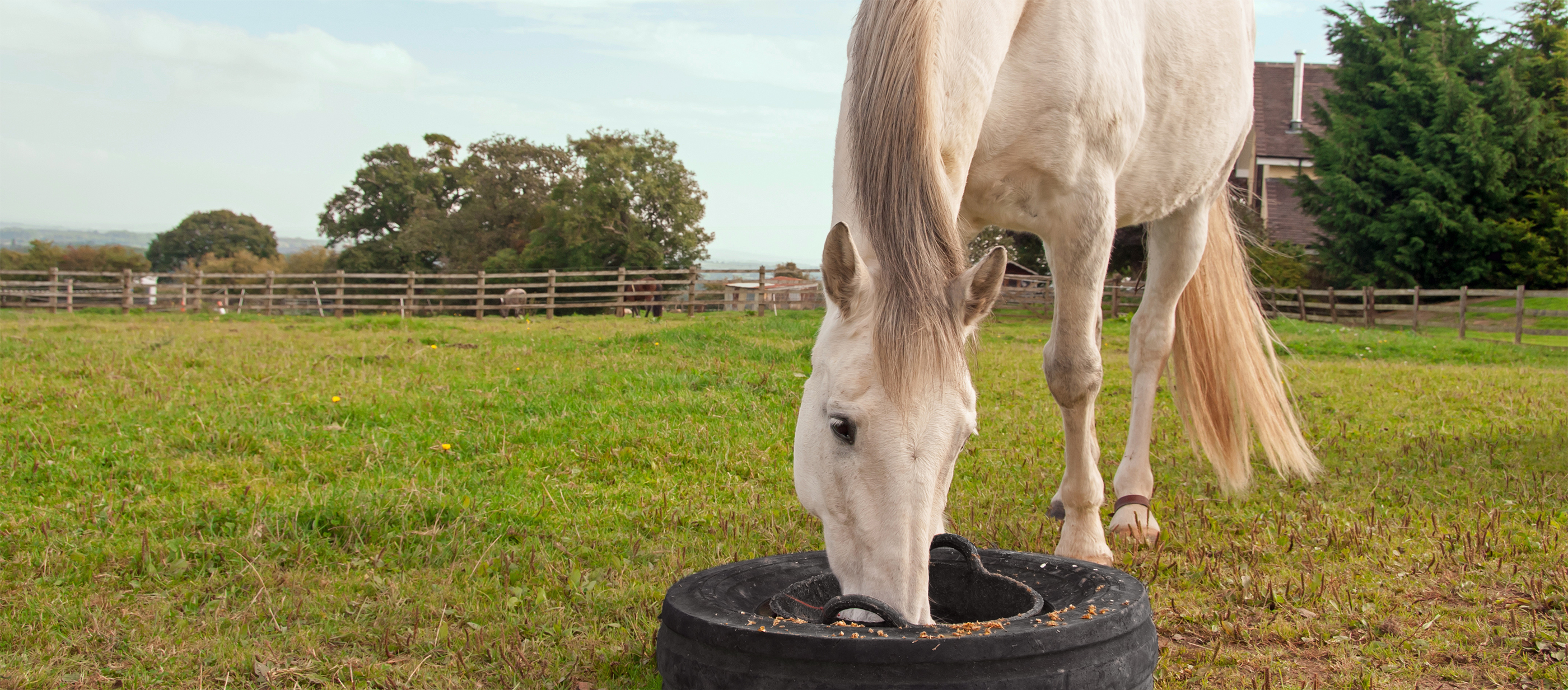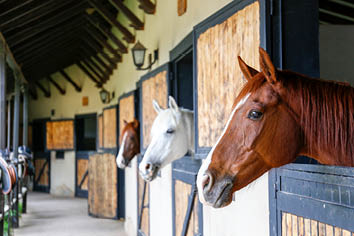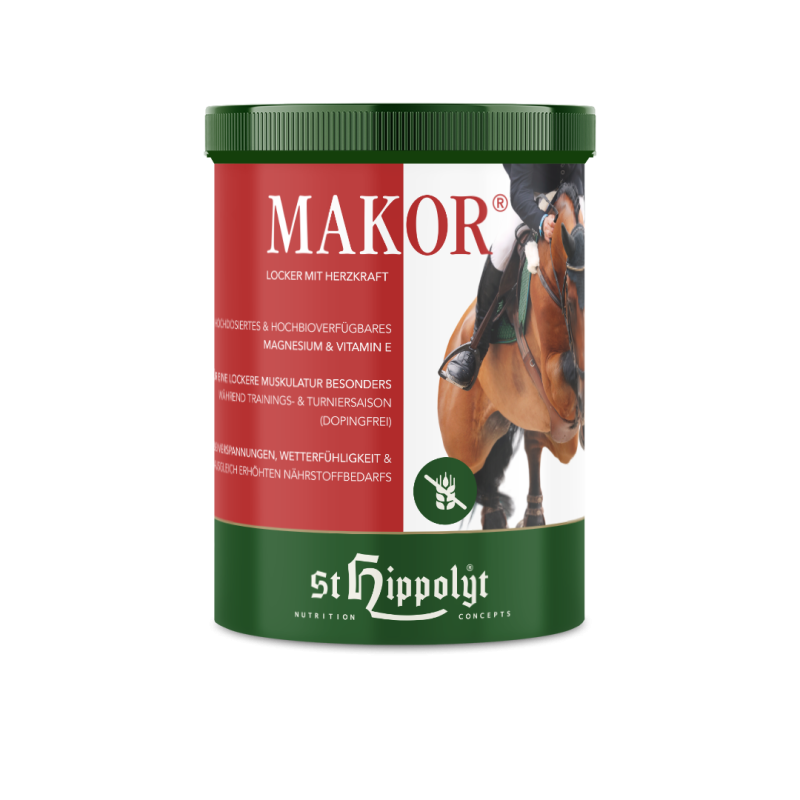
-
Brands
- Agrobs
- Ballistol
- Carr & Day & Martin
- Cavalor
- Charline
- Doskar4Equi
- Dr. Weyrauch
- Effax
- Effol
- Eggersmann
- Ewalia
- Fixkraft
- Gladiator Plus
- Höveler
- Huföl
- Josera
- Kanne
- KERBL Stallbedarf
- KevinBacon's
- Leovet
- Marstall
- Mühldorfer
- Nature´s Best/ Derby
- Nösenberger
- Pavo
- Starhorse
- Steinkraft
- Stiefel
- St. Hippolyt
- TopTeam
- WildHorse
- weitere Marken
- Horse feed
- Seeds
- Various animal feed
- Treats
- Care
- Bedding
- According to needs
- Stable supplies
- Stable pharmacy
- Leather care
- Dog & Human
- Food recommendation
€34.99*
Available, delivery time: 1-3 days
Magnesium mixture (magnesium acetate/magnesium fumarate mixture 22 %, magnesium oxide 9 %, magnesium sulphate 4 %) 35 %, herbs (hawthorn, rosemary, fennel, aniseed) 30 %, cold-pressed oil mixture (linseed, sunflower oil) 8 %, pea protein, brewer's yeast, garlic, maize germ, salt, seaweed meal, fruit pomace (apple, grape), beetroot 0.7 %, calcium carbonate (marine and mineral), turmeric, cinnamon, apple cider vinegar
Product information "St. Hippolyt Makor 1kg"
St. Hippolyt Makor supports loose muscles during demanding training and during the competition season. Free from doping.
The basis of all equestrian sports is a well-trained and loose musculature. Well thought-out and focussed training builds up the muscles in the long term. Nutrients such as vitamin E and magnesium play a central role in the success of training. Magnesium promotes muscle relaxation and is particularly important in the transmission of stimuli between nerves and muscles. An improved oxygen supply to the cells for constant performance can be supported by vitamin E.
Recognising magnesium deficiency:
In times of increased physical and mental stress, the need for magnesium is often no longer covered by the basic feed rations. This particularly affects hard-working horses in training or competition, young horses in training, old horses and mares in foal. Muscle tension and blockages as well as premature labour in pregnant mares are possible consequences of a nutritional deficiency of magnesium. Other more subtle signs can also include anxiety, shortness of breath and tanned legs associated with deficiency-related cardiovascular problems and consequent weather-related colic.
The solution:
The increased need for nutrients can be quickly and reliably balanced by the highly bioavailable magnesium components and natural vitamin E contained in Makor. Selected herbs such as hawthorn, fennel, coriander, turmeric and garlic are a useful addition to the formula. The function of the muscles and energy metabolism are controlled by magnesium. Vitamin E promotes a better oxygen supply to the cells. The need for these nutrients increases in times of increased physical and mental stress. Makor is used in cases of increased training intensity, competitions, lack of energy, long journeys, pregnancy, childbirth and increased stress levels. Possible results: Weather-sensitive horses are more stable, unbalanced horses behave more calmly and tense horses become more rideable.
- For relaxed muscles, especially during the training and competition season (doping-free)
- Highly dosed and highly bioavailable magnesium and vitamin E
- For tension, sensitivity to the weather and to balance increased nutrient requirements
- Special herbal composition and high bioavailability of nutrients
Magnesium mixture (magnesium acetate/magnesium fumarate mixture 22 %, magnesium oxide 9 %, magnesium sulphate 4 %) 35 %, herbs (hawthorn, rosemary, fennel, aniseed) 30 %, cold-pressed oil mixture (linseed, sunflower oil) 8 %, pea protein, brewer's yeast, garlic, maize germ, salt, seaweed meal, fruit pomace (apple, grape), beetroot 0.7 %, calcium carbonate (marine and mineral), turmeric, cinnamon, apple cider vinegar
| Ingredients | |
| Crude protein | 10,00 % |
| crude fat | 10,00 % |
| crude fibre | 6,50 % |
| crude ash | 13,00 % |
| calcium | 0,96 % |
| phosphorus | 0,20 % |
| magnesium | 10,00 % |
| Sodium | 0,50 % |
| Additives per kg | |
| Nutritional and physiological additives | |
| Vitamin A 3a672a | 40 000 IU |
| Vitamin D3 E671 | 4 400 IU |
| Vitamin E 3a700 | 40 000,0 mg |
| Vitamin C 3a300 | 10 000,0 mg |
| Vitamin B12 / cyanocobalamin | 5 000,0 mcg |
| Biotin 3a880 | 700.0 mcg |
| Iron as iron(II) glycine chelate hydrate 3b108 | 300.0 mg |
| Zinc as glycine-zinc chelate hydrate 3b607 | 470.0 mg |
| Manganese as glycine-manganese chelate hydrate 3b506 | 170.0 mg |
| Copper as copper(II) glycine chelate hydrate 3b413 | 50.0 mg |
| Cobalt as coated cobalt(II) carbonate granules 3b304 | 8.0 mg |
| Selenium as selenium yeast from Saccharomyces cerevisiae CNCM I-3060, inactivated 3b810 | 1.1 mg |
| Iodine as calcium iodate, anhydrous 3b202 | 3.0 mg |
Offer approx. 5 g per 100 kg body weight and day mixed with the cot feed.
Note: If necessary, double the amount can be given temporarily. Not suitable for mineralisation to cover requirements.
Dietary supplementary feed to reduce stress reactions. The recommended feeding period is approx. 2-4 weeks. It is recommended to seek the advice of a specialist before using or extending the feeding period.
1 measuring spoon corresponds to approx. 15 g
0 of 0 reviews
Average rating of 0 out of 5 stars
Login








